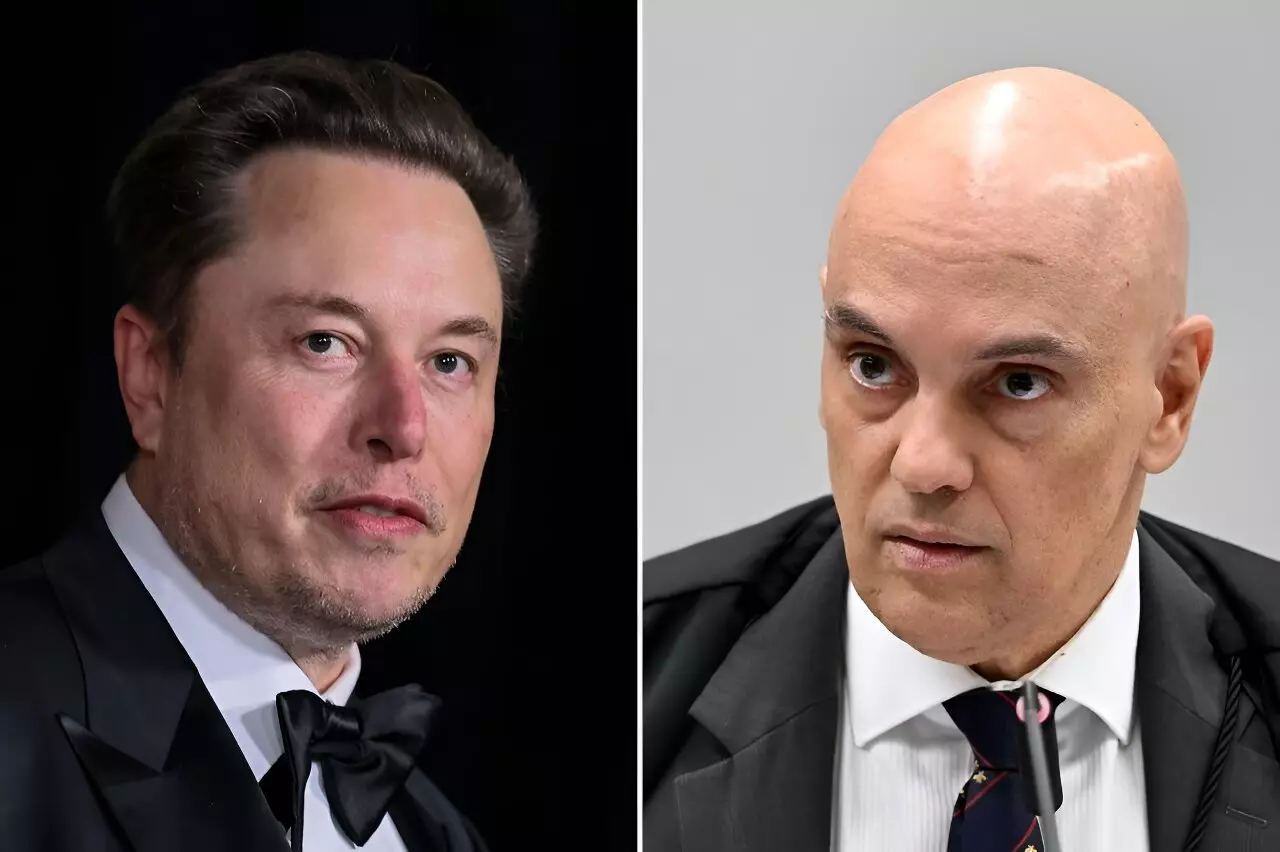The ongoing legal battles between social media platform X, owned by Elon Musk, and Brazil’s judicial system epitomize the complex relationship between digital freedom and law enforcement in the 21st century. With a large user base exceeding 22 million prior to its suspension, X’s operations faced seismic shifts after a direct confrontation with Brazilian Supreme Court Justice Alexandre de Moraes. His recent decision to uphold the suspension of X reflects deeper societal concerns about misinformation and its potential impact on democracy in Brazil.
Brazil finds itself grappling with the implications of false information on its democratic processes, leading to a critical examination of the responsibilities that come with digital communication platforms. Justice Moraes, acting as a guardian against disinformation, determined that X had not met all necessary legal requisites to lift its suspension. This includes naming a legitimate legal representative in Brazil—an initial step that many view as crucial for corporate accountability and adherence to local laws. The court’s decision illustrates a growing trend where tech companies are increasingly held responsible for the content shared on their platforms, particularly concerning political discourse.
The confrontation escalated when it was alleged that X failed to remove multiple right-wing accounts known for disseminating fake news. Musk’s defiance, characterized by his refusal to comply with regulatory demands and accusations against Moraes characterized as dictatorial, adds another layer of complexity to this saga. Such rhetoric not only illustrates Musk’s controversial management style but also highlights the broader clash between authoritarian legal stipulations and the perceived liberties of corporation-led initiatives.
Consequential to this legal skirmish, Moraes placed a hefty fine of over five million reals (approximately $913,000) on X for contravening suspension orders. The platform’s attempt to re-establish access via technical adjustments was labeled as deliberate malfeasance by the court, suggesting an alarming trend of corporate entities sidestepping legal frameworks. This case signals a critical juncture for social media platforms that operate internationally, prompting these businesses to confront local laws and ethical governance rigorously.
Reactions to the suspension of X reveal the stark divisions within Brazilian society. The left, supportive of President Luiz Inacio Lula da Silva, lauded the suspension as a step towards safeguarding democracy, while the right, especially supporters of former president Jair Bolsonaro, decried it as an affront to free speech. This polarizing event brings to light a crucial question about regulating speech online—who gets to decide the line between protection from harmful content and censorship?
Musk’s ongoing feud with the Brazilian judicial system is more than a clash of personalities; it embodies a larger reflection on corporate governance and the responsibilities technology companies bear in a democratic society. As global citizens increasingly turn to social media for information, it is imperative to create frameworks that ensure accountability without stifling free discourse. Thus, the saga surrounding X in Brazil stands as a pivotal moment that will likely influence future legislation and corporate policy regarding digital communication platforms worldwide.
The legal entanglement faced by X in Brazil serves as a stark reminder of the intricate balance between freedom of expression and the essential need for responsible corporate behavior in the digital age.


Leave a Reply
You must be logged in to post a comment.